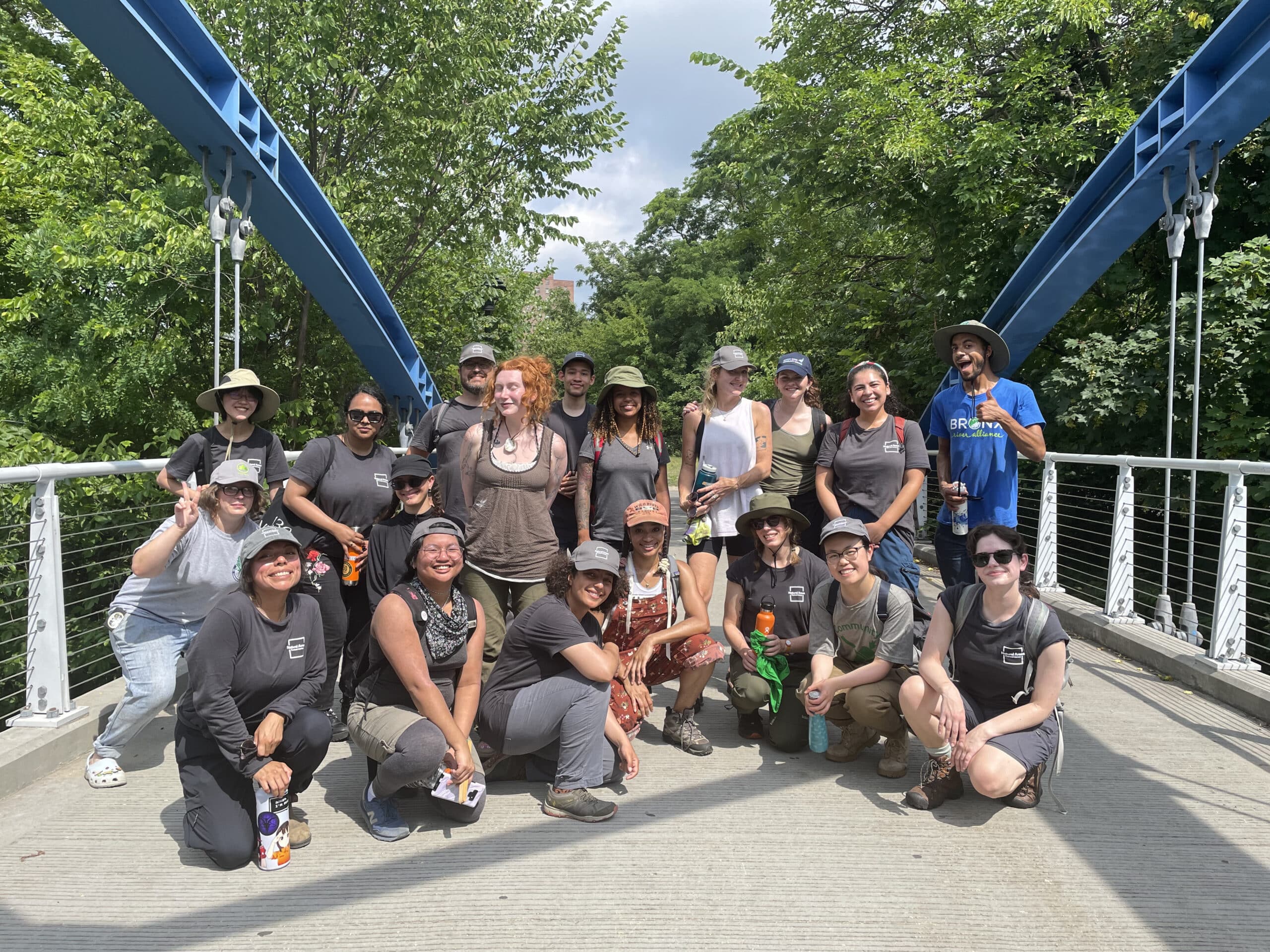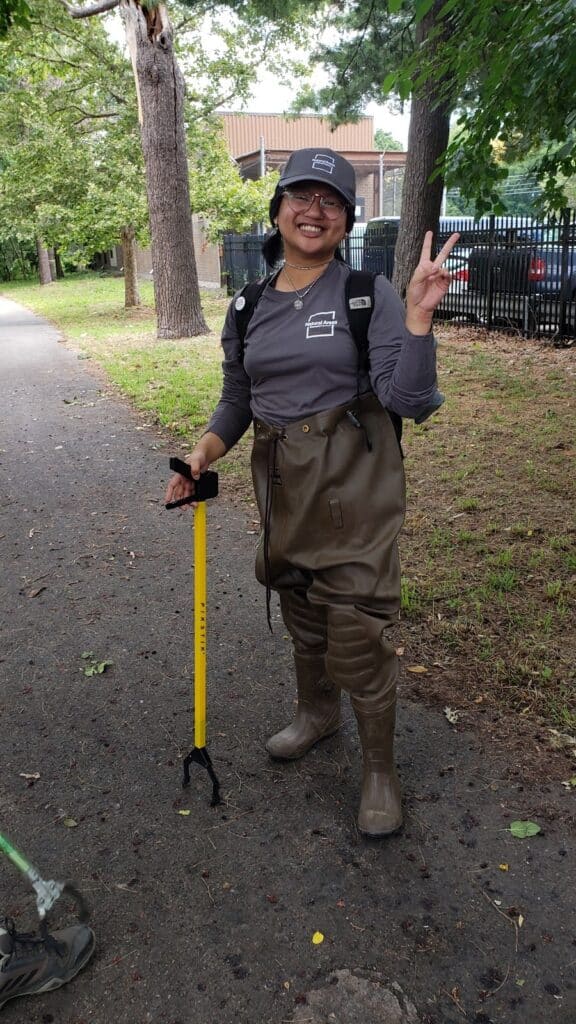Intern Alum Jillian-Mae Prego’s Journey to a Career in Community Environmentalism
By Natural Areas Conservancy on July 01, 2025

By Natural Areas Conservancy on July 01, 2025

 By Jillian-Mae Prego, Community and Volunteer Engagement Associate at Forest Park Trust
By Jillian-Mae Prego, Community and Volunteer Engagement Associate at Forest Park TrustEnvironmentalism has been instilled in me since I was a kid in elementary school, first learning about global warming, sustainability and climate change. It was clear to me early on that we all had a part to play in getting to the point where our global emissions and waste production seriously threatened the health and longevity of our ecosystems. In the same way that Smokey the Bear insisted only we could prevent forest fires, I felt that we all were equally responsible for mitigating further harm to the earth.
In high school I interned and eventually joined a grassroots organization that furthered my understanding of environmental justice in relation to the city itself in addition to climate change. Many neighborhoods and POC communities across the five boroughs have limited access to green spaces as a result of the city’s history of redlining, and in my college years I also learned how our city was built on top of the natural wetlands the Lenape once called home. Modern development later on further destroyed remaining natural spaces or degraded them, making them less viable as healthy places of rest.

2019 Global Climate Protest | Photo credit: “20190920_Climate_Strike_NYC_MH” by 350 .org, CC BY-NC-SA 2.0
I was one of many New Yorkers who turned to their local park as a space to support my physical and mental health in the midst of the pandemic. I took up foraging at this time as a means of reconnecting to myself, nature, and the abundance of life in our urban parks. On my walks I always found something new, and I tapped into the seasonality, growth, and dispersal of different native and non-native plants throughout Forest Park, Queens.
I wasn’t sure what to expect when I applied for the NAC CUNY internship in 2023, but I was grateful for an opportunity that offered training and experience in a field I was completely new to. My passion for nature is very much rooted in my love for community building. So when I was offered the chance to be Field Coordinator for the 2023 summer program, I was excited to not only tap into that skill set but also build up my botanical knowledge with hands-on work. For the first half of the summer, I was trained alongside the other interns and given some insight to the NAC’s accomplishments in conjunction with the NYC Parks Department.
I loved getting to know my fellow interns and seeing how we all came from varying backgrounds, but could still bond over our shared interest in the natural world.
Clearing debris from the Bronx River with the Bronx River Alliance and cleaning up Jamaica Bay with the urban park rangers were some of the highlights of my time with the whole cohort.

The latter half of my summer was spent co-leading a small group of high school students for the NAC’s Student Urban Nature program held in my home park, Forest Park. I was happy to help Naiyiri, the Internship Community Coordinator, create and carry out a curriculum that would introduce these students to the various parts of natural areas research, restoration and maintenance. The few weeks we spent teaching and working with them would eventually lead to the creation of their final projects that demonstrated their understanding of the scientific and research methods they conducted in the field. I am no stranger to organizing and facilitating with young people, so it was really rewarding to see how well they took to all the new information and to watch them develop a deeper appreciation for all the research and physical work that maintains the health of our parks.
Not long after my time with the NAC, I came across a job listing that couldn’t have been a better fit for me at the time. The Forest Park Trust was hiring for a Community Engagement Associate, and after an interview that included a test of my knowledge of plants both native and non-native, I found myself working in the park I grew up in and learning about its history. Not to mention, the history of Highland Park, the adjacent park that was unbeknownst to me until then, despite being no more than a bus ride away. Since I was hired with The Trust, I’ve worked with dozens of groups of volunteers both from the public and from corporate groups referred to us through the Partnerships for Parks program. I’ve become even more well versed in plant life, and have had the chance to introduce many new volunteers to different kinds of restoration work. From restoring trails damaged from erosion, closing social trails that contribute to forest fragmentation, to renaturalizing parts of the forest by planting native shrubs and trees, I gained a wealth of experience in just over half a year of working part time with the staff at The Trust.
I never would have guessed I would be where I am now if you’d have asked me five years ago, but I’ve been lucky enough to have the chance to follow my passions towards greener pastures. Unfortunately, I can’t guarantee I’ll be in the same place in the next five years as our city’s parks are still facing budget cuts that have affected park workers across the board. With the near drought conditions we faced this past fall and the fires in various parks across the city, it’s daunting to consider how the health, cleanliness and safety of our urban natural spaces will be impacted by these budget cuts in the long run. Our work to keep parks running is for the good of our ecosystems and out of love for our city, and as essential as parks have proven themselves to be to our communities, we need more community members to speak up and advocate for our parks alongside us.
Our parks are for all of us, and I hope that you could find some time to take action to support NYC Parks and green spaces. Whether you can find time to volunteer at any of our natural areas, local parks or community gardens, or take the time to tell city hall to restore parks budgets, no action is too small. I’m partial to volunteering as you get directly connected to those who are working in your parks— but there’s more than one way to water your gardens, wherever they bloom.